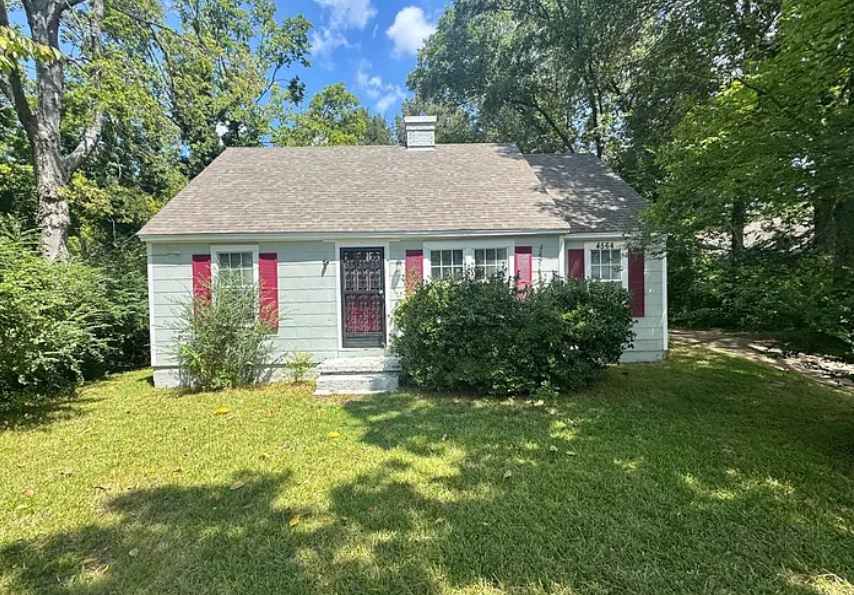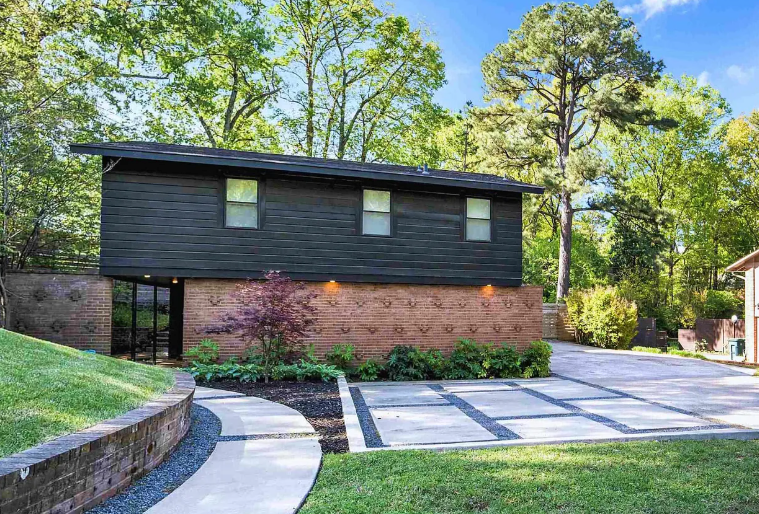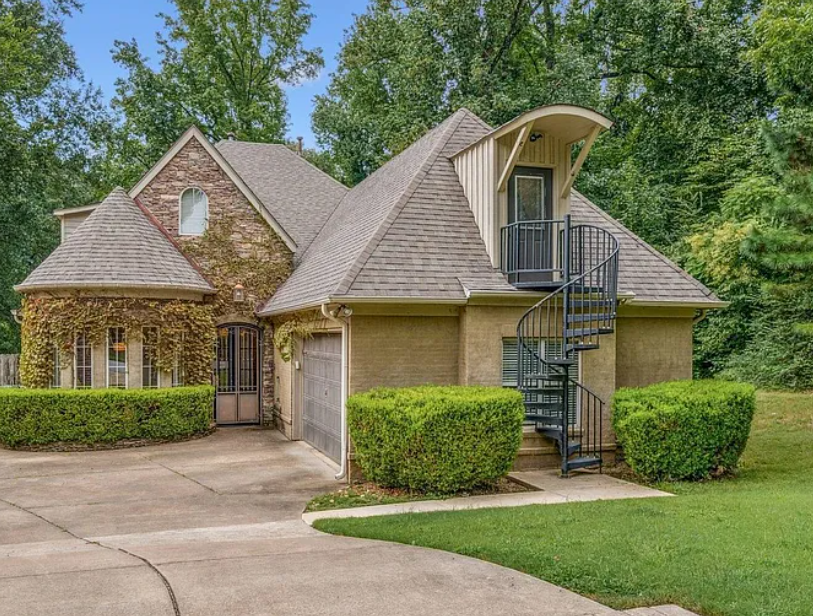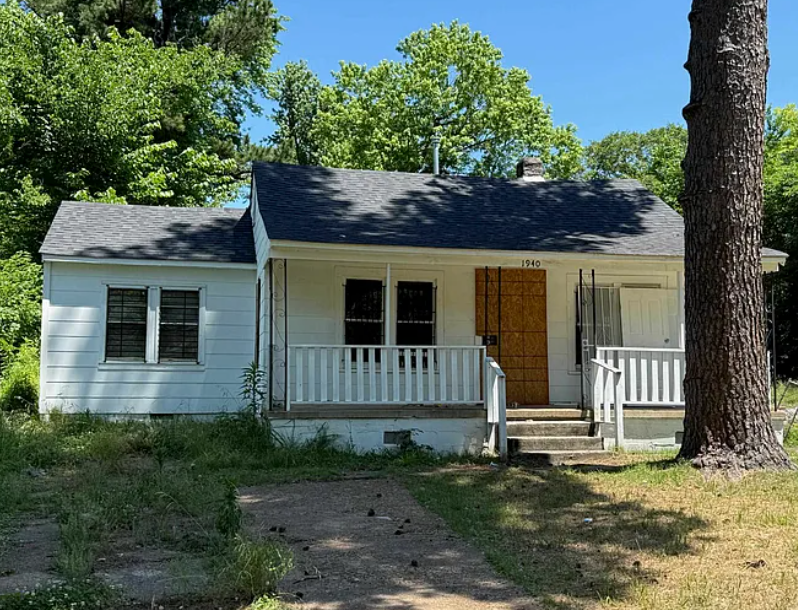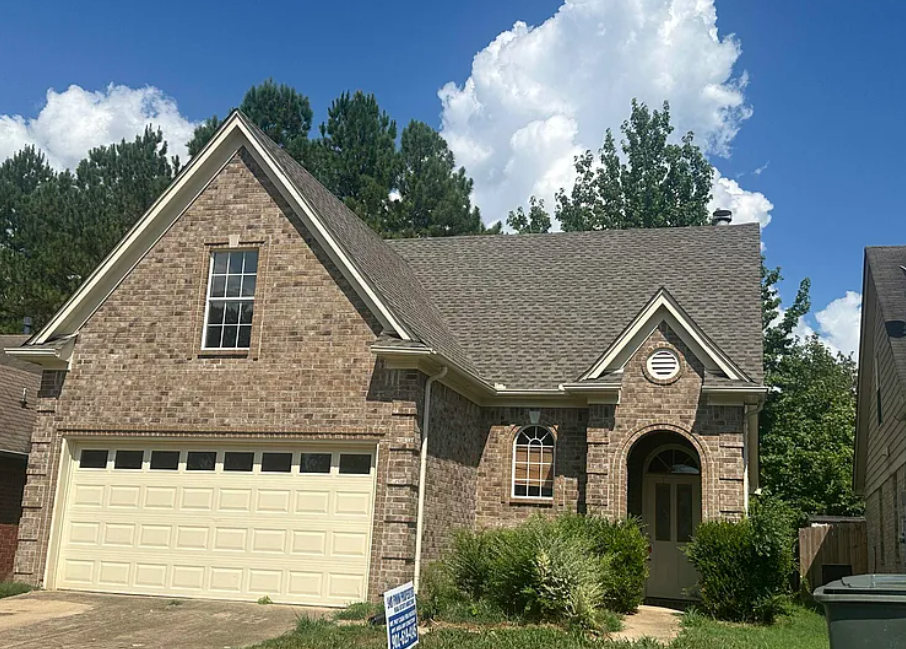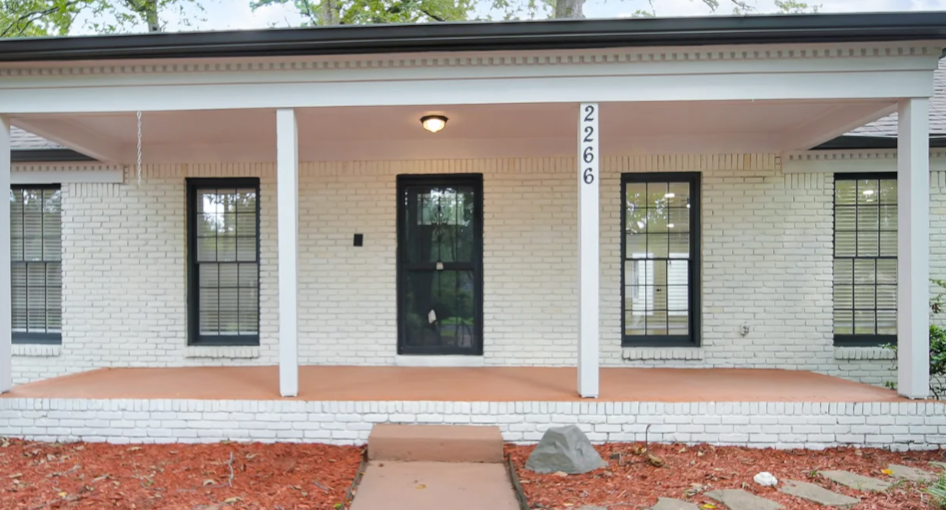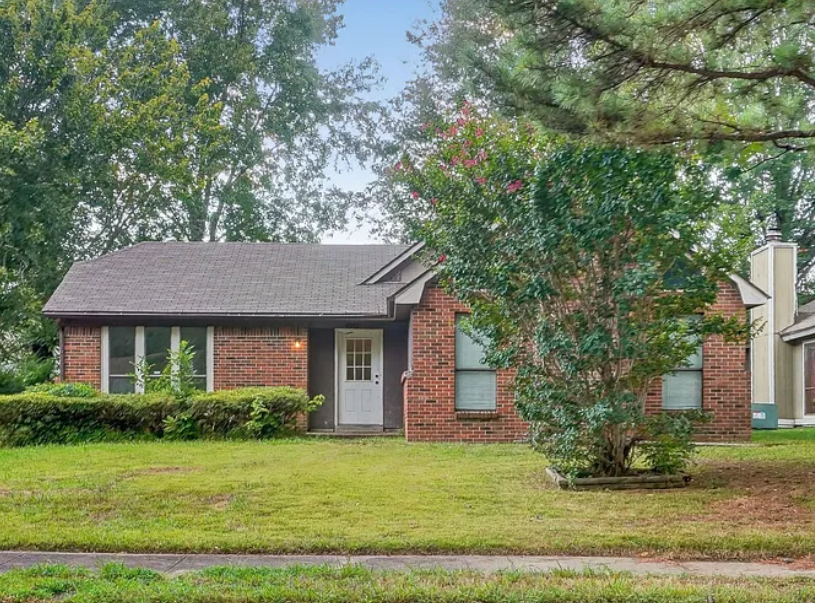Inherited Property in Memphis: Your Complete Selling Guide for 2025
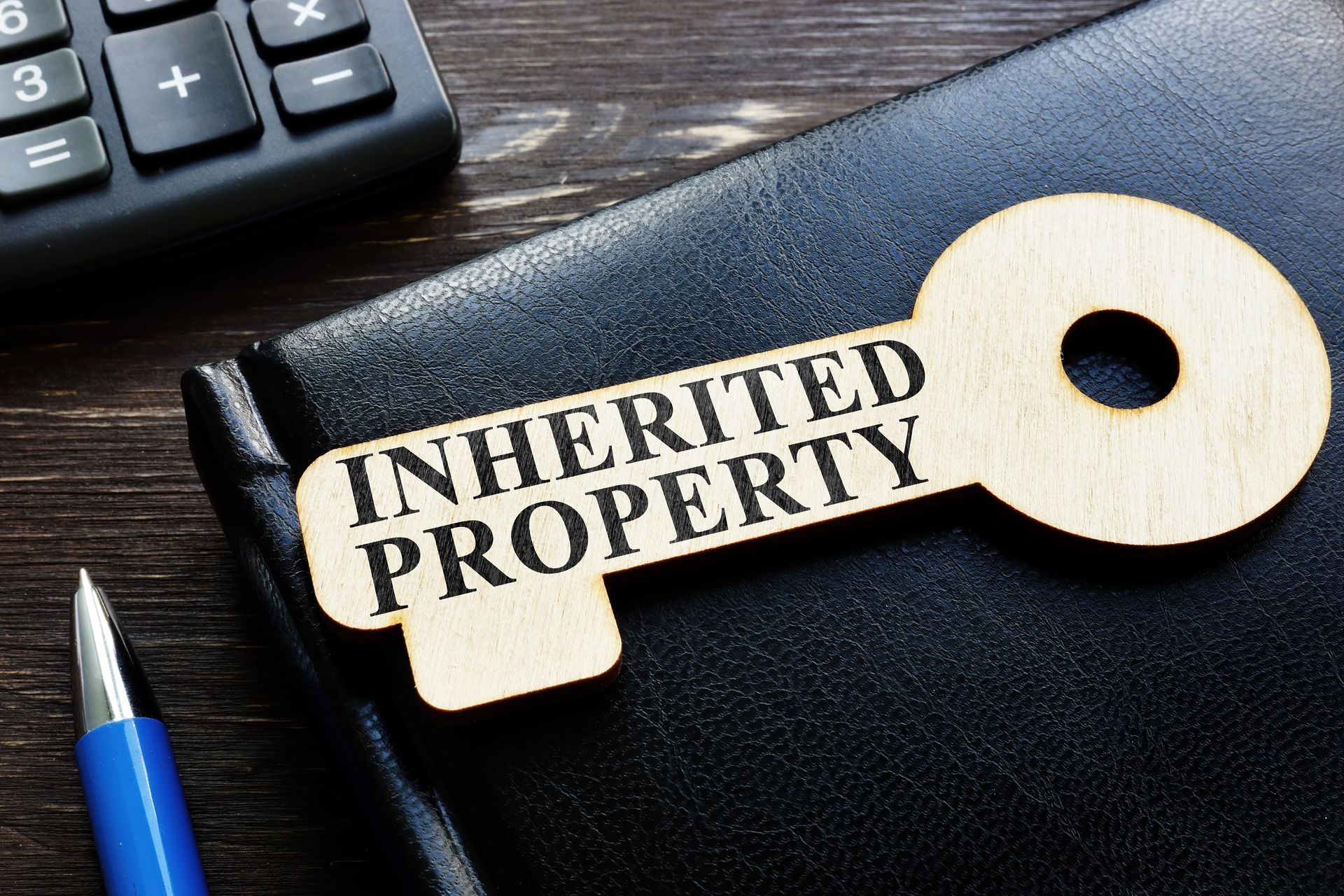
Inheriting property in Memphis can feel overwhelming, especially when you're dealing with grief, family dynamics, and unfamiliar legal processes while trying to make important financial decisions. Whether you've inherited a family home in East Memphis, a rental property in Midtown, or a fixer-upper in an up-and-coming neighborhood, understanding your options and the current Memphis market conditions can help you make informed decisions that honor your loved one's legacy while meeting your own financial needs.
The Memphis real estate market in 2025 presents unique opportunities for inherited property sales, with median home prices of $204,625 and relatively quick sale times averaging 31 days. However, inherited properties often come with complications that traditional property sales don't face, including probate requirements, tax implications, family disagreements, and properties that may have been neglected or need significant updates to meet current market standards.
Memphis's diverse neighborhoods and strong cash buyer presence create multiple pathways for selling inherited property, from traditional real estate sales to quick cash transactions that can help families avoid the time, expense, and emotional stress of lengthy renovation projects. Understanding these options, along with Tennessee's specific laws governing inherited property sales, can help you navigate this challenging process while maximizing the value of your inheritance.
Understanding Inherited Property in Memphis's Current Market
Memphis's 2025 real estate market conditions create both opportunities and considerations for inherited property sales that differ significantly from typical homeowner transactions. The city's position as an affordable major metropolitan area, with home prices 52% below national averages, means that inherited properties often represent substantial value even when they require significant updates or repairs.
The current market's 16.9% premium above long-term pricing trends suggests that inherited properties, particularly those in desirable Memphis neighborhoods, may be worth significantly more than family members expect based on older assessments or tax valuations. This appreciation can provide families with valuable assets, but it also means that proper valuation and strategic selling approaches become crucial for maximizing inheritance value.
Memphis's somewhat competitive market environment, with homes selling in an average of 31 days, benefits inherited property sales by providing reasonable timelines for traditional sales while offering alternatives for families who need quicker resolutions. The presence of numerous cash buyers throughout Shelby, Fayette, Tipton, and DeSoto counties creates options for families dealing with properties in any condition, from move-in ready homes to those requiring extensive renovation.
The emotional and logistical challenges of inherited property sales often make Memphis's cash buyer market particularly attractive to families who want to avoid the stress of preparing properties for traditional sales, managing showings and negotiations, or dealing with repair requests from conventional buyers. Cash buyers typically purchase inherited properties "as-is," eliminating the need for families to invest time and money in updates while providing certainty and quick closings.
Tennessee Legal Requirements for Inherited Property Sales
Tennessee law establishes specific procedures for inherited property sales that families must understand and follow to ensure valid transfers and avoid legal complications. These requirements vary depending on whether the property passes through probate court or through other estate planning mechanisms, but all inherited property sales must comply with state regulations governing property transfers and tax obligations.
Probate Process and Court Approval
Most inherited properties in Memphis must go through Tennessee's probate process, which involves court supervision of estate administration and property transfers. The probate court in Shelby County handles Memphis area estates, and families should understand that probate proceedings can take several months to complete, affecting the timeline for property sales.
During probate, the court appoints an executor or administrator who has legal authority to manage estate assets, including real property. This person must obtain court approval before selling inherited property, and the sale process must follow specific procedures designed to protect the interests of all beneficiaries and creditors.
Tennessee's probate code requires that inherited property be appraised at fair market value, and sales for significantly less than appraised value may require additional court approval or justification. This requirement protects beneficiaries but can complicate quick sales to cash buyers who typically offer below market value in exchange for speed and convenience.
Title and Deed Requirements
Proper title transfer for inherited property requires specific documentation that establishes the new owner's legal right to sell the property. In Tennessee, this typically involves obtaining a new deed that reflects the inheritance, whether through probate court orders, affidavits of heirship, or other legal mechanisms depending on how the property was owned and transferred.
Properties owned jointly with rights of survivorship may transfer automatically to surviving owners without probate, but proper documentation is still required to establish clear title for potential buyers. Properties held in trust may have different transfer requirements that depend on the specific terms of the trust agreement.
Title companies and real estate attorneys in Memphis have experience with inherited property transfers and can help families navigate the documentation requirements while ensuring that buyers receive clear, marketable title. This professional support is particularly important for cash sales, where quick closings depend on having all legal requirements properly addressed.
Tax Implications and Obligations
Inherited property sales in Tennessee involve several tax considerations that can significantly impact the net proceeds families receive from sales. Understanding these tax implications helps families make informed decisions about timing, pricing, and sale strategies.
Tennessee does not impose state inheritance taxes, but federal estate tax requirements may apply to large estates. More importantly for most families, inherited property receives a "stepped-up basis" for federal income tax purposes, meaning that the property's tax basis is adjusted to its fair market value at the time of inheritance rather than the original purchase price.
This stepped-up basis can provide significant tax advantages for inherited property sales, as families may owe little or no capital gains tax even when properties have appreciated substantially over time. However, proper documentation of the property's value at the time of inheritance is crucial for claiming these tax benefits.
Property taxes in Memphis and Shelby County continue to accrue during the probate process, and families are responsible for keeping current on these obligations to avoid liens or other complications that could delay sales. Understanding how property taxes are calculated and prorated at closing helps families estimate their net proceeds accurately.
Timeline for Inherited Property Sales in Memphis
The timeline for selling inherited property in Memphis depends on several factors, including probate requirements, property condition, chosen sale method, and family decision-making processes. Understanding typical timelines helps families set realistic expectations and plan accordingly.
Probate and Legal Preparation Phase (2-6 months)
The initial phase of inherited property sales involves completing probate requirements and obtaining legal authority to sell the property. In Shelby County, probate proceedings typically take 3 to 6 months for straightforward estates, though complex situations involving disputes, creditor claims, or unclear wills can extend this timeline significantly.
During this phase, families should begin gathering information about the property, including recent tax assessments, utility bills, insurance policies, and any existing liens or mortgages. This information helps establish the property's current condition and financial obligations while preparing for eventual sale decisions.
Families can use this time to research Memphis market conditions, interview potential real estate professionals or cash buyers, and discuss sale strategies among beneficiaries. Early preparation can help expedite the actual sale process once legal authority is established.
Property Assessment and Decision Phase (2-4 weeks)
Once legal authority to sell is established, families typically need 2 to 4 weeks to assess the property's condition, determine its market value, and decide on a sale strategy. This phase involves property inspections, market analysis, and often difficult family discussions about whether to invest in improvements or sell the property as-is.
Professional property inspections can help families understand the scope and cost of any needed repairs, while comparative market analysis provides realistic expectations about potential sale prices. This information is crucial for deciding between traditional sales that might require property improvements and cash sales that accept properties in current condition.
Family meetings during this phase should address everyone's preferences regarding timeline, pricing, and sale method. Clear communication and decision-making processes can prevent delays and conflicts that might complicate the sale process.
Sale Process and Closing (1-4 months)
The actual sale timeline depends heavily on the chosen sale method. Traditional real estate sales in Memphis currently average 31 days on the market plus additional time for closing, resulting in total timelines of 2 to 4 months from listing to closing.
Cash sales can significantly reduce this timeline, with many cash buyers able to close within 2 to 4 weeks of agreement. This speed can be particularly valuable for families dealing with ongoing property expenses, family conflicts, or other pressures to resolve the inheritance quickly.
Closing procedures for inherited property sales involve additional documentation compared to typical sales, but experienced title companies and attorneys can manage these requirements efficiently. Families should plan for potential delays related to title issues, final probate approvals, or other inherited property complications.
Memphis Market Conditions for Inherited Properties
Memphis's current market conditions create specific opportunities and challenges for inherited property sales that families should understand when developing their sale strategies.
Neighborhood Market Variations
Memphis's diverse neighborhoods present different market conditions that can significantly impact inherited property values and sale strategies. East Memphis, with median prices around $320,000 but experiencing a 4.5% year-over-year decline, may offer opportunities for families with inherited properties in established neighborhoods to achieve strong sale prices despite recent market softness.
Midtown Memphis continues to attract strong buyer interest, particularly from young professionals and investors drawn to the area's walkability, cultural amenities, and proximity to downtown employment centers. Inherited properties in Midtown often appeal to both traditional buyers seeking character homes and cash buyers focused on rental property investments.
Downtown Memphis's ongoing development and 8.3% price appreciation create opportunities for inherited properties in urban core areas, though these properties may require more significant updates to meet current buyer expectations for modern amenities and finishes.
Suburban areas like Germantown and Collierville typically attract family buyers who may prefer traditional sales processes, while areas with lower price points often see more cash buyer activity from investors focused on rental properties or fix-and-flip projects.
Cash Buyer Interest in Inherited Properties
Memphis's strong cash buyer presence creates particular opportunities for inherited property sales, as these buyers often specialize in properties that may not appeal to traditional buyers due to condition issues, outdated features, or other factors common in inherited properties.
Cash buyers understand that inherited properties often come with emotional and logistical challenges that make traditional sales difficult for families. They typically offer streamlined processes that eliminate many of the complications associated with traditional sales, including repair negotiations, financing contingencies, and extended closing timelines.
The Memphis market's affordability relative to national averages makes it attractive to cash buyers from higher-cost markets who can leverage their purchasing power to acquire multiple properties or invest in markets with stronger cash flow potential. This outside investment creates additional demand for inherited properties throughout the metropolitan area.
Local cash buyers often have experience with inherited property purchases and understand the specific legal and emotional considerations involved. This expertise can be valuable for families navigating their first inherited property sale.
Benefits of Cash Sales for Inherited Properties
Cash sales offer several advantages for inherited property transactions that can address many of the common challenges families face when dealing with inherited real estate.
Elimination of Repair and Update Requirements
One of the most significant advantages of cash sales for inherited properties is the elimination of repair and update requirements that often burden families in traditional sales. Inherited properties frequently need updates to electrical systems, plumbing, HVAC, roofing, or cosmetic improvements to appeal to traditional buyers who expect move-in ready conditions.
The cost of these improvements can easily reach $15,000 to $50,000 or more for older Memphis homes, representing substantial investments that families may not have the resources or desire to make. Cash buyers typically purchase properties "as-is," allowing families to avoid these expenses while still achieving reasonable sale prices.
Beyond the financial considerations, managing renovation projects can be emotionally and logistically challenging for families dealing with grief and other inheritance-related stress. Cash sales eliminate these burdens while providing certainty about sale completion.
Speed and Certainty of Closing
Cash sales typically close within 2 to 4 weeks compared to 2 to 4 months for traditional sales, providing families with faster resolution of inheritance matters. This speed can be particularly valuable when families face ongoing property expenses, family conflicts, or other pressures to resolve the estate quickly.
The certainty of cash sales eliminates many of the risks associated with traditional sales, including financing contingencies, inspection negotiations, and appraisal issues that can delay or derail transactions. For families dealing with inherited properties, this certainty provides peace of mind and allows for better planning of estate distribution.
Simplified Transaction Process
Cash sales involve fewer parties and less complex processes than traditional sales, reducing the coordination and communication requirements for families who may be dealing with multiple beneficiaries, out-of-state family members, or other complicating factors.
The simplified process also reduces the likelihood of misunderstandings or conflicts that can arise during traditional sales when families must make decisions about repairs, pricing adjustments, or other issues that arise during extended sale processes.
Tax Strategies for Inherited Property Sales
Understanding tax implications and strategies can help families maximize the value they receive from inherited property sales while ensuring compliance with federal and state tax requirements.
Stepped-Up Basis Advantages
The stepped-up basis provision of federal tax law provides significant advantages for inherited property sales by adjusting the property's tax basis to its fair market value at the time of inheritance. This adjustment can eliminate or substantially reduce capital gains taxes that would otherwise apply to property appreciation over time.
For Memphis properties that have appreciated significantly over decades of ownership, the stepped-up basis can save families thousands of dollars in taxes. However, proper documentation of the property's value at the time of inheritance is crucial for claiming these benefits.
Professional appraisals conducted shortly after inheritance can provide the documentation needed to support stepped-up basis claims while also helping families understand current market value for sale planning purposes.
Timing Considerations
The timing of inherited property sales can impact tax obligations and should be considered as part of overall sale strategy. Properties sold within one year of inheritance typically qualify for long-term capital gains treatment regardless of how long the deceased owner held the property, providing favorable tax rates for any gains above the stepped-up basis.
Families considering improvements to inherited properties before sale should understand that these investments may not provide dollar-for-dollar increases in the stepped-up basis, potentially affecting the tax efficiency of improvement strategies.
Professional Tax Guidance
Given the complexity of tax laws affecting inherited property sales, families should consider consulting with tax professionals who understand both federal requirements and Tennessee-specific considerations. This guidance can help optimize sale strategies while ensuring compliance with all applicable tax obligations.
Common Challenges and Solutions
Inherited property sales often involve unique challenges that require specific strategies and solutions to ensure successful outcomes.
Family Disagreements and Decision-Making
Multiple beneficiaries may have different preferences regarding sale timing, pricing, and methods, creating potential conflicts that can delay or complicate sales. Establishing clear communication processes and decision-making procedures early in the process can help prevent or resolve these conflicts.
Professional mediation or family meetings facilitated by estate attorneys can help families work through disagreements while focusing on shared goals of maximizing inheritance value and resolving estate matters efficiently.
Property Condition and Maintenance Issues
Inherited properties may have been neglected during the owner's final years or may simply reflect older construction standards and maintenance practices. Addressing these issues requires balancing the costs and benefits of improvements against alternative sale strategies.
Professional property inspections can help families understand the scope and priority of needed repairs while cash buyer consultations can provide alternatives that eliminate the need for family investment in improvements.
Emotional Attachments and Sentimental Value
Family members may have strong emotional attachments to inherited properties that can complicate objective decision-making about sale strategies and pricing. Acknowledging these emotions while focusing on practical considerations can help families make decisions that honor their loved one's memory while meeting current financial needs.
Creating opportunities for family members to retrieve sentimental items and take photos before sale can help address emotional needs while allowing the sale process to proceed efficiently.
Working with Memphis Professionals
Successful inherited property sales often benefit from professional guidance that can help families navigate legal, financial, and practical challenges while ensuring optimal outcomes.
Estate Attorneys and Legal Support
Experienced estate attorneys can guide families through probate requirements, title issues, and other legal aspects of inherited property sales. Memphis area attorneys with estate planning and real estate experience understand local court procedures and can help expedite legal requirements.
Legal support is particularly important for complex estates involving multiple properties, unclear wills, or family disputes that might affect property sales.
Real Estate Professionals and Cash Buyers
Both traditional real estate agents and cash buyers can provide valuable services for inherited property sales, though the best choice depends on family priorities regarding timeline, pricing, and process complexity.
Interviewing multiple professionals and understanding their approaches, fees, and timelines can help families make informed decisions about representation and sale strategies.
Tax and Financial Advisors
Professional tax and financial guidance can help families understand the implications of inherited property sales and optimize their strategies for tax efficiency and overall financial planning.
This guidance is particularly valuable for families inheriting multiple properties or those with complex financial situations that might be affected by inheritance proceeds.
Conclusion: Making Informed Decisions About Inherited Property in Memphis
Inheriting property in Memphis presents both opportunities and challenges that require careful consideration of legal requirements, market conditions, family dynamics, and personal financial goals. The Memphis market's current conditions, with strong cash buyer presence and reasonable sale timelines, provide families with multiple options for converting inherited real estate into liquid assets that can be distributed according to estate plans and family needs.
The key to successful inherited property sales lies in understanding all available options, from traditional real estate sales that might maximize pricing to cash sales that prioritize speed and simplicity. Each approach has advantages and trade-offs that families should evaluate based on their specific circumstances, including property condition, family dynamics, financial needs, and emotional considerations.
Memphis's diverse neighborhoods and strong investment community ensure that inherited properties throughout the metropolitan area have potential buyers, whether families choose traditional sales processes or alternative approaches like cash buyers. Understanding local market conditions and working with experienced professionals can help families navigate the complexities of inherited property sales while achieving outcomes that honor their loved one's legacy and meet their current needs.
The emotional and logistical challenges of dealing with inherited property are real and significant, but Memphis's real estate market provides families with viable options for resolving these challenges efficiently and profitably. By understanding the process, exploring all options, and seeking appropriate professional guidance, families can successfully convert inherited real estate into valuable assets that support their financial goals and provide closure during difficult times.
Request Your Offer Now
